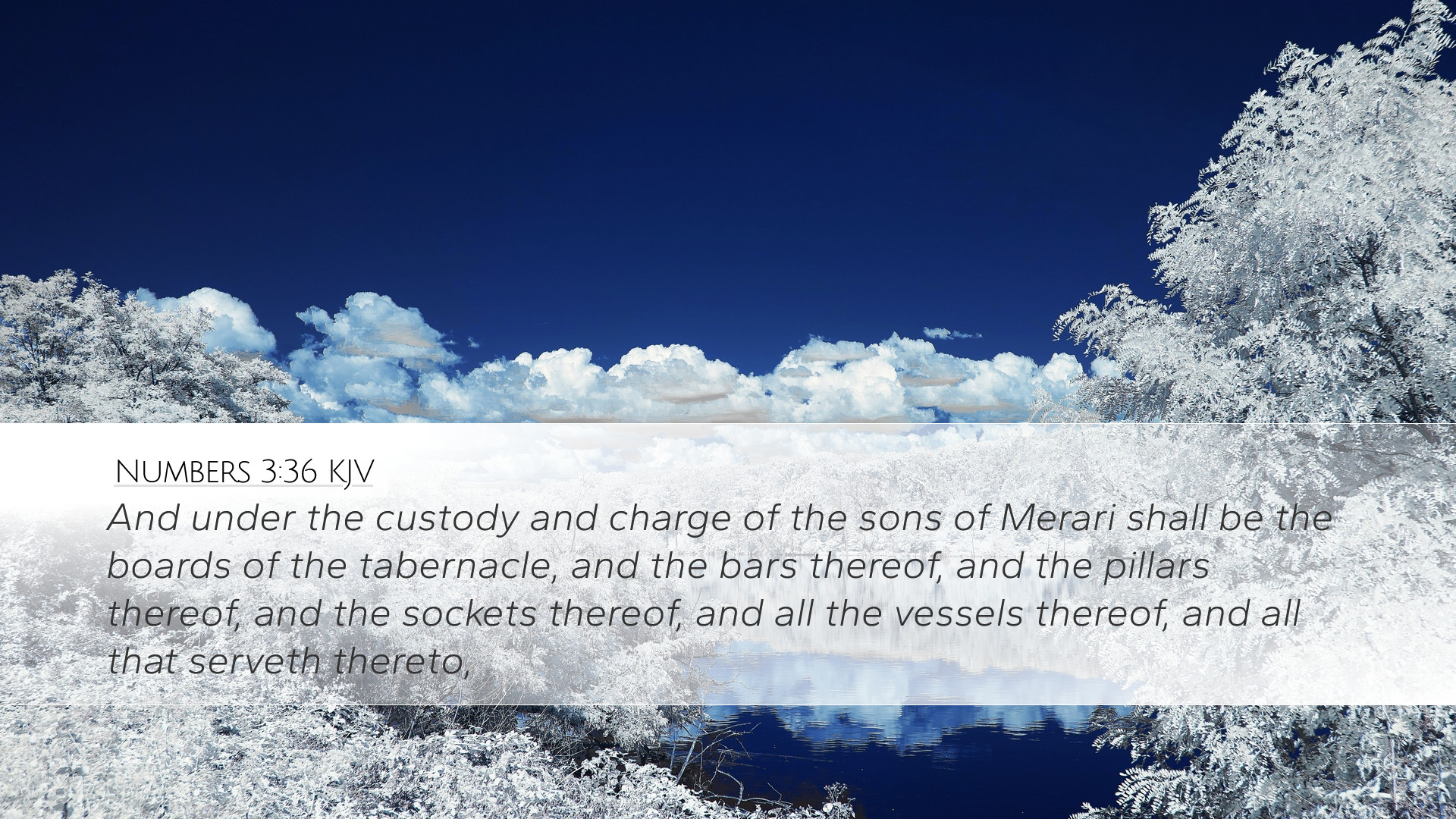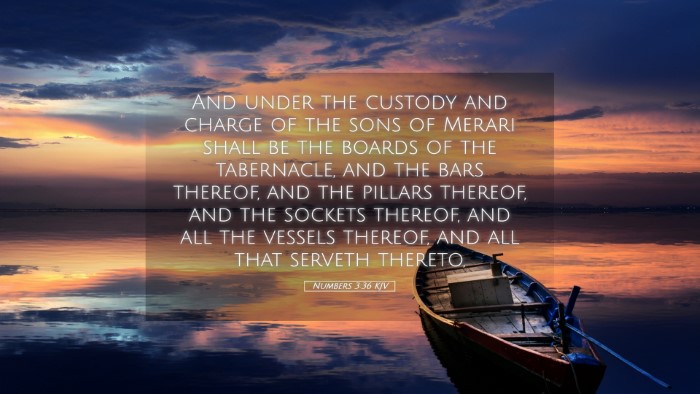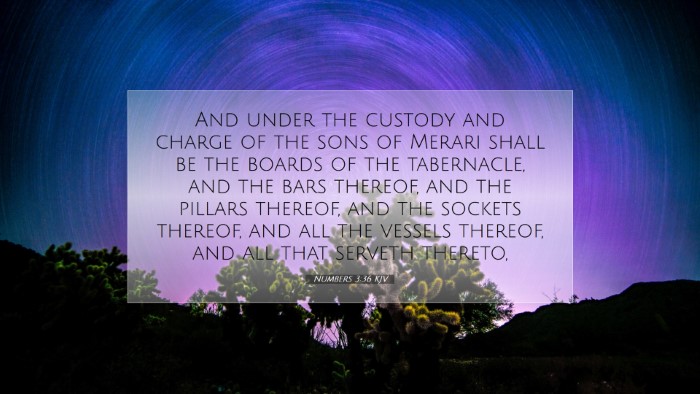Commentary on Numbers 3:36
Numbers 3:36 reads: “The appointed duties of the sons of Merari were under the direction of Ithamar son of Aaron the priest.” This verse is significant as it highlights the organization of the Levitical priesthood and the responsibilities delegated to specific families within it.
Contextual Analysis
The Book of Numbers provides a historical account of the Israelites in the wilderness and emphasizes God’s instructions for their organization and sacred duties. Throughout this book, the Lord establishes specific duties for the Levites, particularly those from the family of Merari, in carrying out the important tasks related to the Tabernacle.
Key Themes
- Divine Order: The roles and responsibilities assigned in the Tabernacle service illustrate God’s desire for order in worship and community life.
- Role of Leadership: Ithamar, as a son of Aaron, symbolizes the priest's governing authority, overseeing the Levites' tasks.
- Service and Responsibility: Each family of the Levites had particular responsibilities that contribute to the overall function of the Tabernacle.
Commentary Insights
Matthew Henry's Commentary
Matthew Henry emphasizes that the arrangement of the duties among the Levites points towards the importance of proper service in the house of God. He remarks on the structured approach in which each tribe had its specific assignments, suggesting that this reflects the larger order God intends for His people. Henry draws attention to Ithamar’s role, highlighting the necessity of God-ordained leadership in spiritual matters.
Albert Barnes' Notes on the Whole Bible
Albert Barnes elaborates on the responsibilities of the Merarites, who were tasked with the more burdensome aspects of the Tabernacle's transportation and maintenance. He notes that Ithamar’s oversight implies a hierarchical structure within the priestly class, which served to maintain efficiency and accountability in the campsite setup of the Israelites. His commentary focuses on the meticulous care needed in handling the sacred items and underscores the principles of stewardship that can be applied today.
Adam Clarke’s Commentary
Adam Clarke provides a detailed exposition regarding the family of Merari and their significant duties, particularly in the context of the traveling Tabernacle. Clarke interprets this delegation as a foreshadowing of the instituted order of the church, where believers are also called to specific roles. He alludes to the spiritual implications of this organization, asserting that order in sacred duties parallels the moral order in individual lives and communities.
Theological Implications
This verse's implications reach beyond mere historical observation; it acts as a template for understanding God’s authority in the organization of His people. The focus on specific duties assigned to Ithamar and the Merarites reflects a broader ethos of delegated responsibility within the body of Christ today. The principle of orderly worship and service carries through to modern-day church structure and governance.
Application for Ministry
- Recognizing God-given Roles: Leaders in the church today must recognize and affirm the diverse gifts and roles within their congregation, promoting an environment where each member can fulfill their calling.
- Emphasizing Accountability: Just like Ithamar was accountable for the Merarites' duties, church leaders should encourage accountability in ministry tasks to ensure a healthy and thriving community.
- Honoring Structure in Worship: Understanding the significance of structure in worship fosters reverence and ensures that each aspect of service is carried out with integrity and honor toward God.
Conclusion
Numbers 3:36 serves as a poignant reminder of the importance of order, responsibility, and the recognition of God-given authority within His community. Pastors, students, theologians, and scholars can glean valuable insights from the careful organization of duties in the worship life of ancient Israel, which can inform contemporary practices within the church today.


